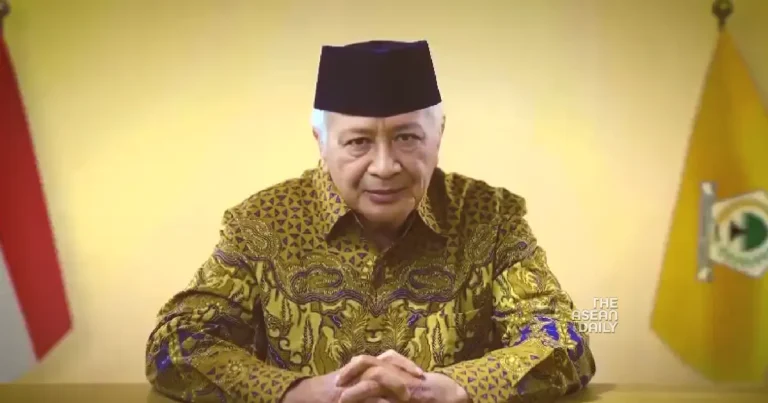17-1-2024 (JAKARTA) As Indonesia gears up for the upcoming presidential and legislative elections, a contentious video leveraging artificial intelligence to resurrect the image and voice of the deceased former dictator Suharto has ignited a debate on the ethical and legal ramifications of such technology in political campaigns.
Posted on social media by a Golkar Party politician, the video portrays a lifelike simulation of Suharto, donned in a batik shirt, urging voters to support Golkar candidates. The use of AI in political campaigning has raised concerns about potential threats to the integrity and fairness of the electoral process, prompting calls for regulations from democracy and election activists.
Harapan dan perjuangan bangsa Indonesia tak akan pernah padam, akan selalu diwujudkan dalam setiap generasi. Mimpi-mimpi Indonesia akan selalu terwujud. Pada 14 Februari 2024, kita akan menentukan nasib bangsa Indonesia. Kita harus memilih wakil rakyat dan pemimpin yang tepat… pic.twitter.com/Kpvr3WtaKW
— Erwin Aksa (@erwinaksa_id) January 7, 2024
Suharto, a military general, held power for 32 years until his downfall in 1998, marking the beginning of a new democratic era in Southeast Asia’s largest country. Under his rule, Indonesia experienced human rights abuses, corruption, and nepotism. The AI-generated video has sparked discussions on the unrestrained use of such technology for political propaganda, potentially violating legal and ethical boundaries.
The video, utilizing deepfake technology, has garnered over 4.5 million views since its posting on January 6. While AI in political campaigns is not exclusive to Golkar Party, experts emphasize the need for regulations and guidelines, considering the potential misuse of AI to manipulate and mislead voters.
As Indonesia approaches its general election on February 14, political stakeholders, including the General Elections Commission (KPU), face the challenge of addressing the ethical implications of AI in campaigning. Without specific rules on AI usage, concerns persist about the impact on public opinion and the potential for deceptive political practices.




